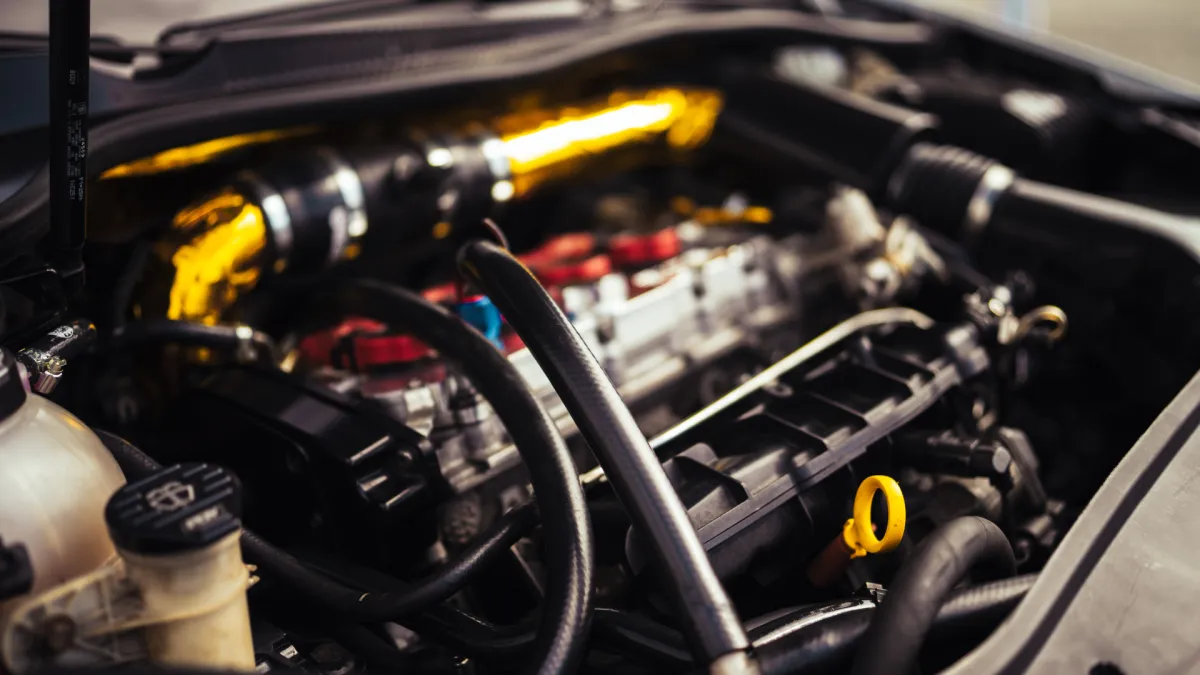BLOGS

Advanced Engine Care: Pro Tips to Maximize Efficiency and Lifespan
Advanced Engine Care: Pro Tips to Maximize Efficiency and Lifespan
When it comes to your vehicle’s engine, basic maintenance is just the beginning. For those who want to get the most power, fuel efficiency, and longevity out of their car, it’s time to take things to the next level. Advanced engine care goes beyond oil changes and routine checkups—it’s about understanding how your engine operates and fine-tuning every component to work in harmony.
In this blog, we’re diving deep into pro-level tips that help maximize your engine’s efficiency, enhance performance, and extend its lifespan.
1. Use High-Quality Synthetic Oil and Stick to a Precision Oil Change Schedule
Why it matters:
While conventional oil works fine for many cars, high-performance or aging engines benefit significantly from high-quality synthetic oil. Synthetic oil resists breakdown under high heat and maintains better lubrication at cold temperatures. It also contains advanced additives that help keep the engine cleaner by reducing sludge and deposit buildup.
Pro tip:
Instead of just following a mileage-based schedule, use oil life monitoring systems (available in most modern vehicles) or consider oil analysis services to determine exactly when to change your oil. This precision approach can help you avoid over- or under-changing oil, maximizing both performance and efficiency.
2. Upgrade to a High-Flow Performance Air Filter
Why it matters:
Engines need a steady supply of clean air to burn fuel effectively. A high-flow performance air filter not only offers superior filtration but also improves airflow, leading to better combustion. This can slightly increase horsepower and throttle response, while also improving fuel efficiency.
Pro tip:
Unlike standard paper filters, performance filters (like those made by K&N or AEM) are reusable and can be cleaned rather than replaced. Just make sure to clean and re-oil them according to the manufacturer’s schedule to avoid over-oiling, which can affect sensors.
3. Maintain and Upgrade Your Cooling System
Why it matters:
Heat is one of the biggest enemies of engine longevity. If your cooling system isn’t performing optimally, your engine may run hotter than it should, which increases wear on internal components and reduces overall efficiency. Over time, high operating temperatures can lead to warped cylinders, blown gaskets, or worse.
Pro tip:
Regularly inspect and flush your radiator, check coolant levels, and consider upgrading to a high-capacity radiator or performance water pump if you drive in hot climates or push your vehicle hard. Using a higher-quality coolant (with corrosion inhibitors) can also make a noticeable difference in engine health.
4. Clean the Fuel System and Injectors Regularly
Why it matters:
Deposits can build up on fuel injectors over time, especially if you frequently drive in stop-and-go traffic or use lower-quality gasoline. Dirty injectors disrupt the precise fuel spray pattern, leading to inefficient combustion, poor acceleration, and increased emissions.
Pro tip:
Use a fuel system cleaner every 3,000 to 5,000 miles to keep injectors clean. For even better results, consider professional fuel injector cleaning services every 20,000–30,000 miles, especially for direct-injection engines which are more prone to carbon buildup.
5. Upgrade Your Ignition System for Stronger, More Reliable Sparks
Why it matters:
The ignition system (including spark plugs, wires, and coils) plays a vital role in your engine's combustion process. Weak or inconsistent sparks reduce engine power and increase fuel consumption. Upgrading to high-performance spark plugs and ignition coils ensures that combustion happens efficiently every time, especially under high load or performance conditions.
Pro tip:
Install iridium or platinum spark plugs for longer life and better conductivity. Pair them with performance ignition coils and consider replacing plug wires with low-resistance aftermarket versions. This upgrade is especially beneficial for turbocharged engines or vehicles with performance modifications.
6. Perform Engine Carbon Cleaning or Walnut Blasting
Why it matters:
In direct-injection engines, carbon deposits can form on intake valves, leading to rough idling, hesitation, and decreased fuel efficiency. Traditional fuel additives won’t clean this carbon since fuel no longer passes over the valves in these systems.
Pro tip:
Schedule a professional carbon cleaning service, such as walnut blasting, every 30,000 to 50,000 miles for direct-injection engines. This procedure uses crushed walnut shells to remove carbon deposits safely without damaging internal components. The result? Smoother idle, restored performance, and improved fuel economy.
7. Monitor Engine Performance with an OBD-II Scanner or Tuner
Why it matters:
Many engine issues develop slowly over time and don’t immediately trigger a check engine light. By using an OBD-II scanner, you can track engine metrics like air/fuel ratios, timing, and misfire counts in real-time, helping you detect early signs of trouble before they become major problems.
Pro tip:
Advanced tuners or performance modules not only help monitor but can also optimize your engine’s ECU (engine control unit) settings for better fuel economy or power. Just make sure any tuning is done carefully to avoid putting excessive stress on engine components.
8. Follow a Detailed, Proactive Maintenance Routine
Why it matters:
The best engine care comes down to consistency and attention to detail. Proactive maintenance helps prevent breakdowns, optimizes fuel consumption, and keeps your engine running strong for hundreds of thousands of miles.
Pro tip:
Create a detailed maintenance checklist tailored to your specific vehicle, including scheduled oil changes, filter replacements, fluid flushes, belt inspections, sensor checks, and timing component replacements. Use a maintenance tracking app or logbook to stay organized and ensure nothing is overlooked.
Bonus: Reduce Engine Load with Smart Driving Habits
Why it matters:
Your driving habits can significantly impact how hard your engine has to work. Sudden acceleration, frequent idling, and heavy towing all add extra strain, which over time shortens engine life and increases wear on vital components.
Pro tip:
Drive smoothly and avoid aggressive starts and stops. Use cruise control on the highway to maintain a steady speed, and lighten your vehicle’s load when possible. Letting your engine warm up for a minute or two on cold mornings also helps extend its life by reducing wear during startup.
Final Thoughts
Advanced engine care isn’t just about keeping your vehicle running—it’s about maximizing every ounce of performance and ensuring your engine lasts well beyond the average lifespan. By following these professional tips and making informed upgrades, you’ll get the most out of your investment and enjoy a more powerful, responsive, and efficient drive every day.
Need a Professional Car Mechanic ? Visit us on Automed Car Care Calvar City.





